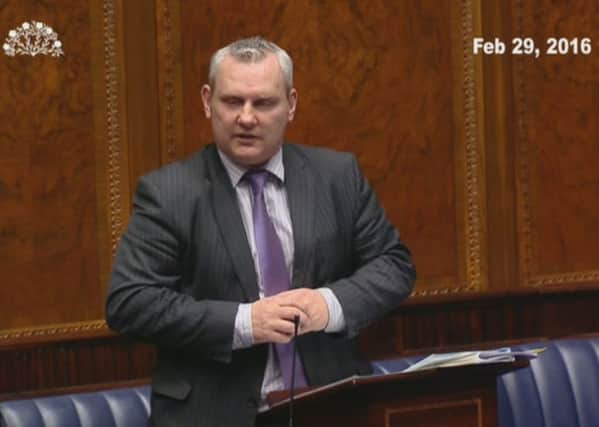Ex-MLA's alarm at Speaker's move to halt backbench members' bills


Last month it emerged that Speaker Robin Newton has halted Stormont legislators from bringing forward legislation because he says that the Assembly can’t cope with it.
Many private members’ bills do not make it through the legislative process into law, but those which do are often significant and address areas where the Executive has chosen not to legislate.
Advertisement
Hide AdAdvertisement
Hide AdHowever, the Speaker has asked for a review of the procedures for backbenchers and opposition MLAs bringing forward bills, arguing that the 19 bills which have already been brought forward since May’s election have swamped officials who work on drafting new laws.
Until that review is complete, Mr Newton said that no further bills could be brought forward.
Former independent MLA John McCallister, who secured the passage of his Opposition Bill – which allowed for Stormont’s first Official Opposition since 1972 – before losing his seat in May’s election, said that the Assembly’s ability to bring forward and scrutinise legislation was one of the much-maligned institution’s strengths.
He said that increasingly MLAs had realised that the could “really change things” and that the Assembly ought to have responded to that by increasing support for legislators.
Advertisement
Hide AdAdvertisement
Hide AdHe said that there are already a multitude of hurdles to overcome if a backbench MLA wants to bring forward a bill and pointed to how the DUP-run finance department had effectively killed UUP leader Mike Nesbitt’s libel reform bill just by stating that it was considering legislating in that area of law – even though more than two years later there is no evidence of the department bringing forward a bill.
“I think it’s a backward step,” he told the News Letter, adding that the right to bring a bill is “one of the most important tools” which allowed an MLA to do their job.
“We need to see more staff in the Assembly’s Bills Office and a split like Scotland between those dealing with Executive bills and those dealing with Private Members’ Bills.”
He highlighted that the reduction in the number of Assembly committees as a result of the number of Executive departments being cut had saved the Assembly about £170,000 a year, money which he said could be used to support its primary function as a legislature.
Advertisement
Hide AdAdvertisement
Hide AdThe former South Down MLA added: “Private Members’ Bills are a vital part of our democratic process and even ones that fail often push an agenda like rating on sports clubs. And they can deal with issues where the Executive can’t come to agreement, such as David Ford’s bill on abortion in cases of fatal foetal abnormality.”
In correspondence seen by The Irish News, the Speaker described the number of bills as a “record” and notes that it is “close to total of the 25 private members’ bills which was supported across the entire duration of the last Assembly”.